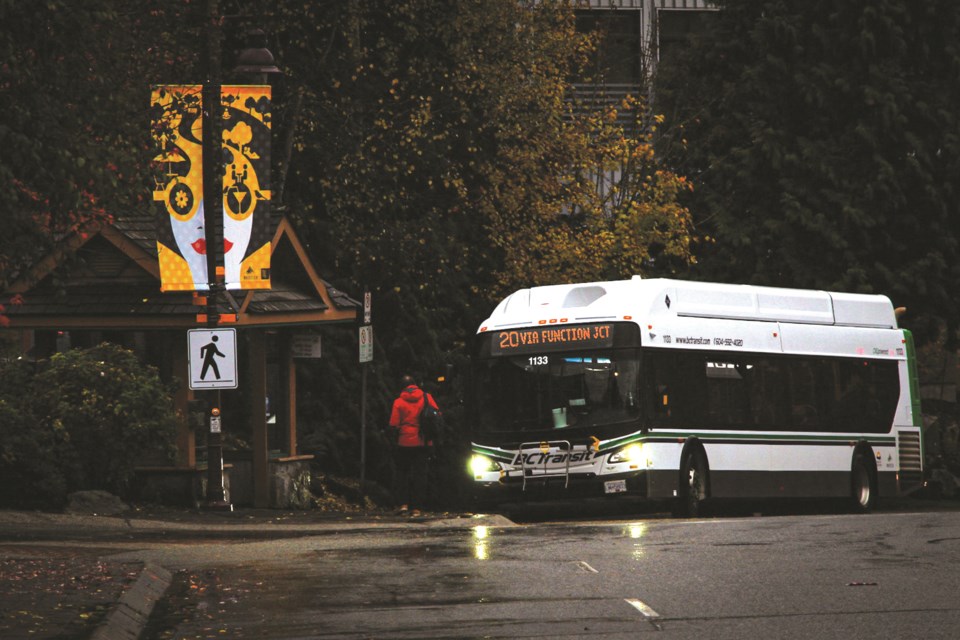On Tuesday, March 16, the Hilton Whistler was at 96-per-cent occupancy, a number that wouldn’t have been unusual in the resort’s pre-pandemic times. Heading into B.C.’s March break, the hotel is expecting occupancy levels to stay at more than 90 per cent for the remainder of this week.
But unlike those heady days before we even knew the word “coronavirus,” the Hilton has had to make due with a workforce stretched thin by two years of public health orders and travel restrictions. Now, with the Sea to Sky transit strike entering its seventh week, the hotel is another three workers short.
“The seasonal staff we rely on are transient by nature and if they don’t have a reliable way to work and can’t get their hours, if any of those things aren’t easy enough, then they go find the next place,” said Hilton GM Chris Vick. “We’ve had a few move back down to the city because it was too much of a hassle. Obviously cab fares are pricy and cost-prohibitive. Most of our staff live outside of the immediate village, so there aren’t a ton of options.”
It’s the same story being shared by numerous local businesses trying to navigate a corridor-wide transit shutdown during a busy March break they were banking on to shore up some of the immense losses suffered in the pandemic.
“It’s staff not getting in on time or not being able to come into work, [or] hitchhiking, which is not the safest thing to do,” said Whistler Chamber of Commerce CEO Melissa Pace. “Right now some of our workers in the community are spending upwards of $40 a day just to get to work, or it’s being paid out of pocket by the business owners.”
Workers have been forced to get creative in finding ways to work. Some have managed to arrange rides with colleagues, while others are simply hitchhiking or walking along Highway 99. Police have also reported an uptick in drunk driving during the strike, Mayor Jack Crompton said at the March 8 council meeting. Hotels like the Hilton, meanwhile, are using their guest shuttles to pick up and drop off staff—but that comes with its own limitations.
“We run three trips north and three trips south a day to pick up staff. We’re trying to accommodate our teams as much as possible, but we can’t afford to run an on-call taxi service, so that might mean they’re coming a couple hours before their shift or after their shift,” Vick said.
As the parties involved in the dispute head back to the bargaining table this week, Pace reiterated the need for urgency as Whistler faces what is likely to be its busiest March break since at least 2019.
“We are about to welcome visitors from across the world and we need to be prepared for that,” she said. “A bus strike does not bode well for receiving, welcoming and servicing the guests that we’re about to receive.”
Back to bargaining
There was some hope this week after it was announced the parties involved in the ongoing dispute would be heading back to the bargaining table on Wednesday, March 16, after Pique’s press deadline.
“Once again, we apologize for the inconvenience these ongoing negotiations have caused, we understand the impact this matter has had on the community. We are hopeful that this meeting will yield a reasonable resolution for everyone involved,” said Pacific Western Transportation (PWT), the private company contracted by BC Transit to deliver transit services in the Sea to Sky. (PWT declined further comment when asked.)
March 16 marks the first day of negotiations since talks broke down Feb. 25. On Feb. 24, PWT had proposed a settlement offer that included a wage increase for all employees in each year of the agreement and retroactive pay increases back to 2020, as well as full benefits for all employees. Unifor Local 114 did not put the offer to its membership for a vote, nor did it present a counter proposal.
Gavin McGarrigle, Unifor’s western regional director, said the bargaining committee wouldn’t put a proposed settlement to a vote until there is “a realistic roadmap to dealing with these issues that recognizes the comparison [to transit wages in the Lower Mainland], that recognizes the high cost of inflation, that recognizes that when you want to build a public regional transit system, you’re having to take care of the people providing the service.”
The union has consistently called for a more robust pension plan and benefit package, as well as wage parity with transit workers in the Lower Mainland and Victoria. After Coast Mountain Bus Company workers voted last week to ratify a one-year contract extension that included a three-per-cent wage bump for all operators and a five-per-cent hike for skilled tradespeople, the wage gap with Vancouver transit workers has only widened further.
“We’ve always said from Day 1 that we know dealing with those key issues is not something we expect immediately in one fell swoop. But we’re talking about a collective agreement here where the members need to see a roadmap,” McGarrigle said.
Unifor is planning another rally in Whistler for Thursday, March 17, with transit workers setting off from Skiers Plaza at noon.
“Come down and listen to the workers and demonstrate that the community has had enough,” McGarrigle added.




